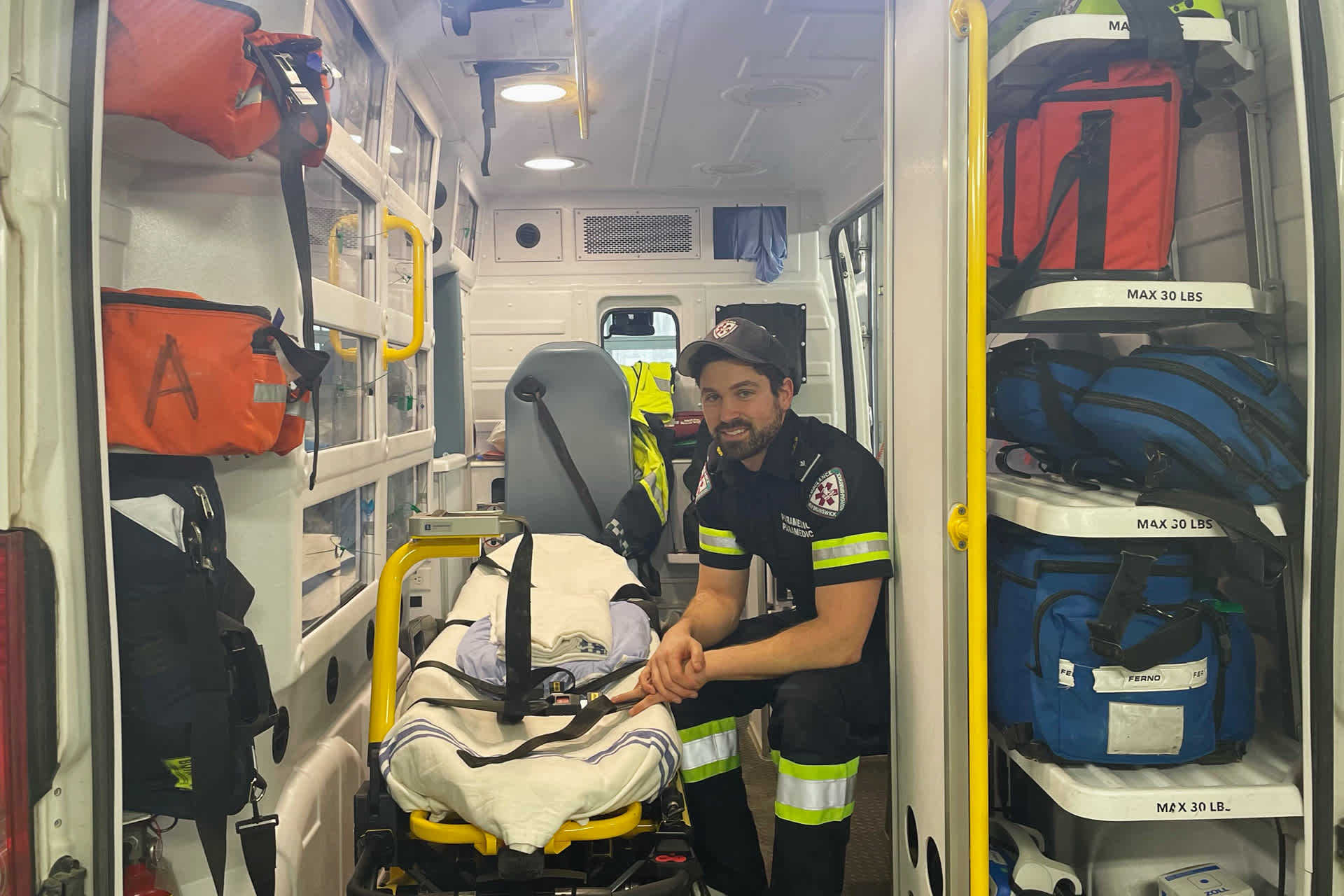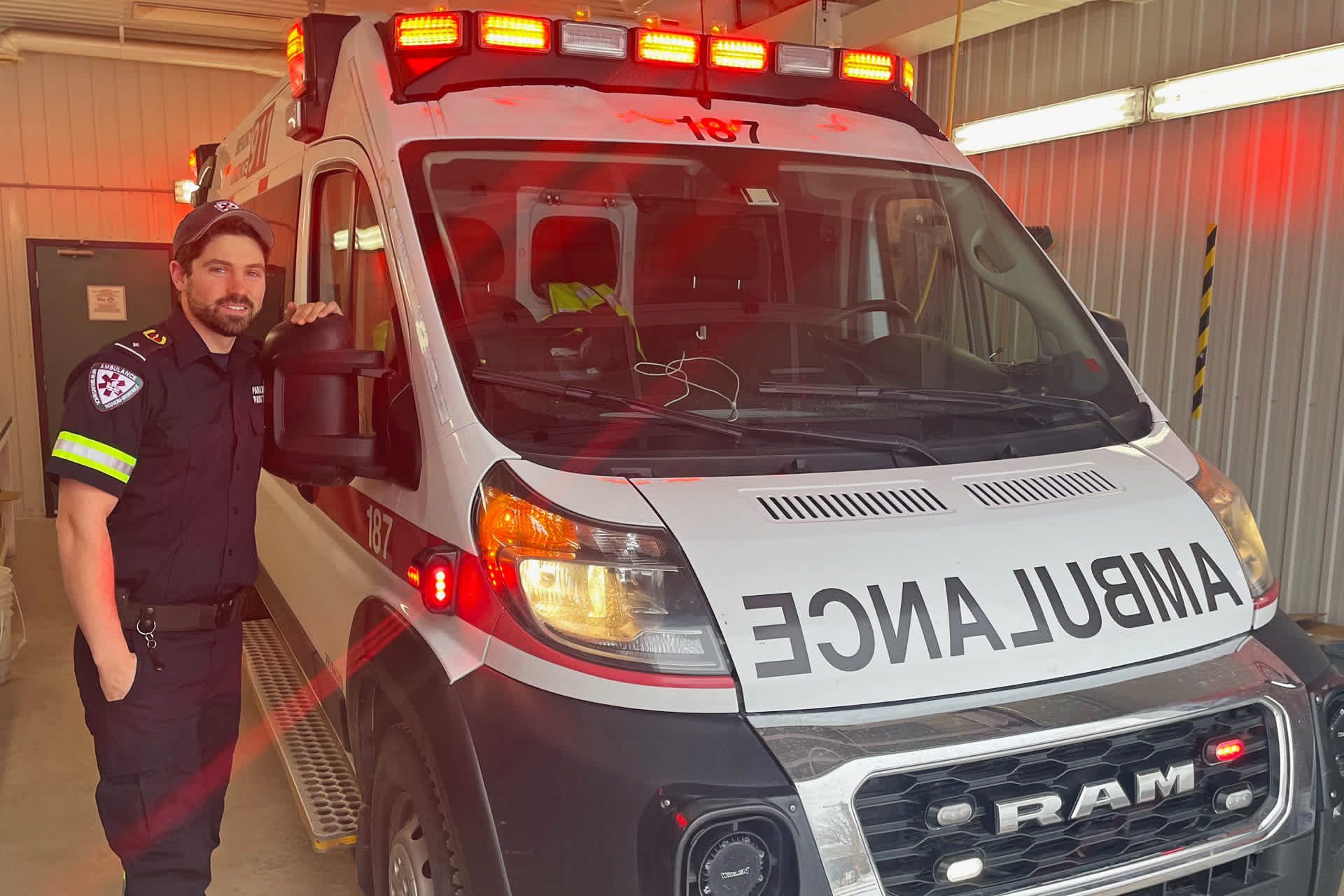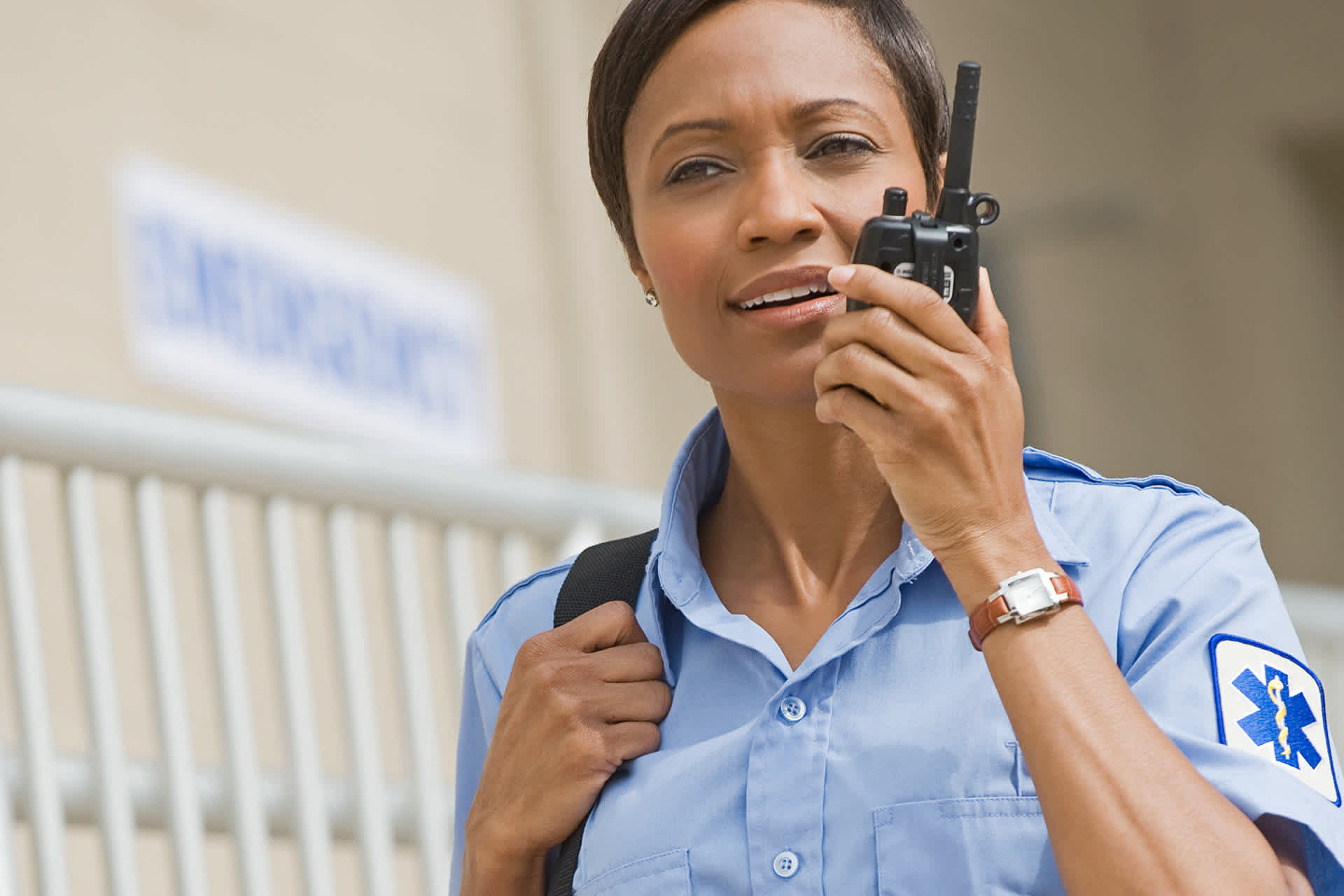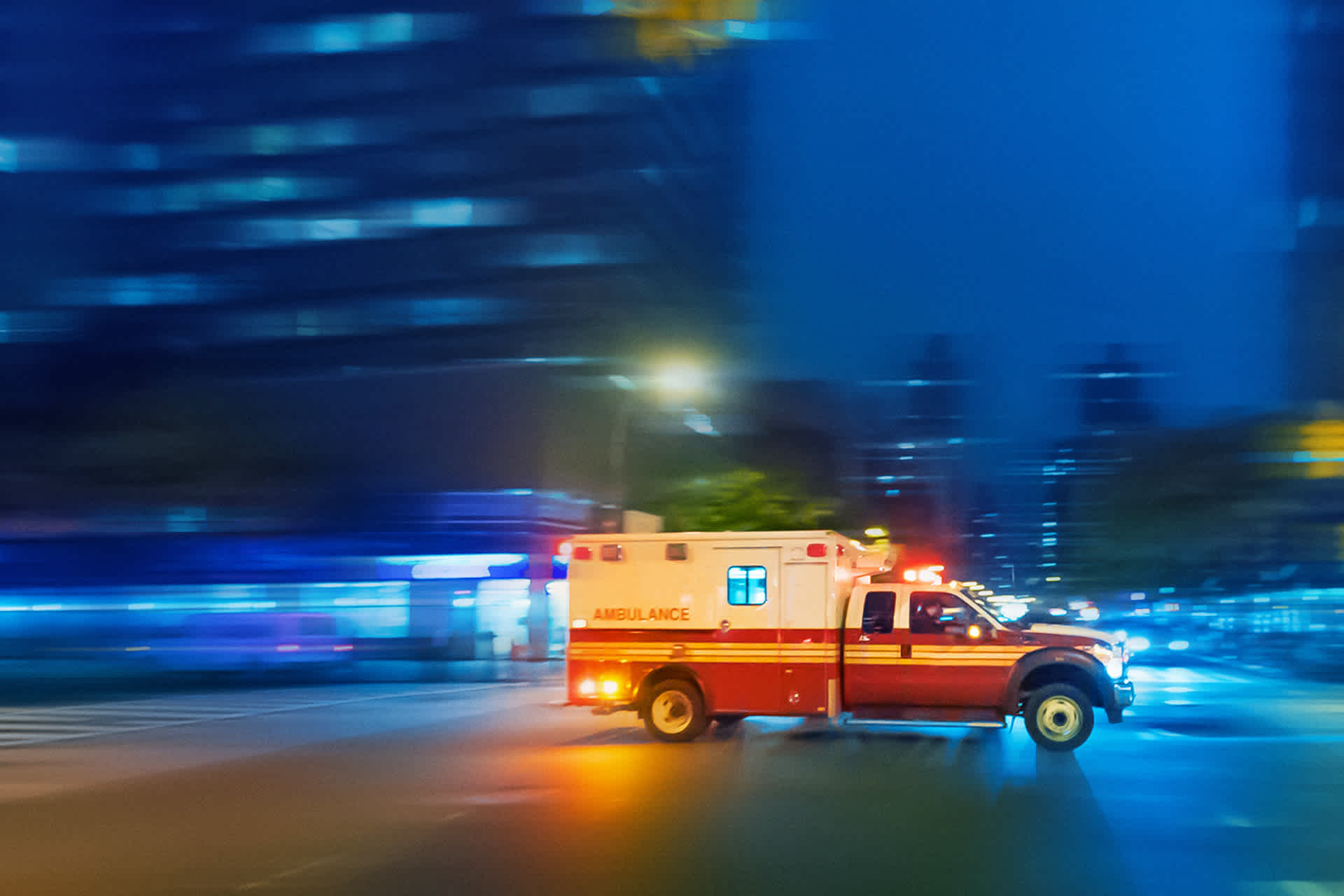Sirens On

Daniel Matthews is a paramedic in the province of New Brunswick, Canada. He keeps a busy schedule, working 12-hour shifts, sometimes during the day and sometimes at night.
When he and his partner arrive for a shift, “we first have to go through a ‘truck check’ to see that the ambulance has all the necessary equipment,” Matthews told Your Hot Job. “Once we’re ready to go, we’re assigned a post.” Then he and his partner respond to 911 calls made from that area.

On the Move
Emergency calls require a quick response. “When our medical dispatch center receives the 911 call, they send [it] to a cell phone that we carry,” Matthews says. The phone has all the information he and his partner need about the type of emergency they’re responding to. Matthews also uses a portable radio and GPS on the phone to guide him to a location.

A paramedic’s job is unpredictable. You go from relaxing to rushing to an emergency. “It can be difficult, sitting in a chair one minute, and the next, you will be in a ditch on the side of a highway doing CPR,” Matthews says.
And the emergencies change with the seasons. “In the winter, we respond to car accidents due to bad weather or winter sports accidents,” Matthews says. In the summer, there are calls about shortness of breath and asthma due to humidity and heat, as well as recreational vehicle accidents.
Be Prepared
Matthews never knows what kind of emergency he’ll face. So he has to be ready for anything. Being a first responder “comes more naturally for me and many medics, as we tend to be able to stay calm in these situations,” he says. “Not everybody has a personality that can remain calm for a job like this.”

A paramedic’s work can be stressful. Staying centered and controlling your emotions are important for this job. It isn’t just about saving lives, Matthews says. It’s about treating patients with respect. Staying calm is a big part of being able to help people when they’re scared or hurt.
Taking care of yourself is also important, Matthews says. “To be a good medic, you need to get consistent, proper exercise,” he says. But perhaps most important of all? “Good family support.”

